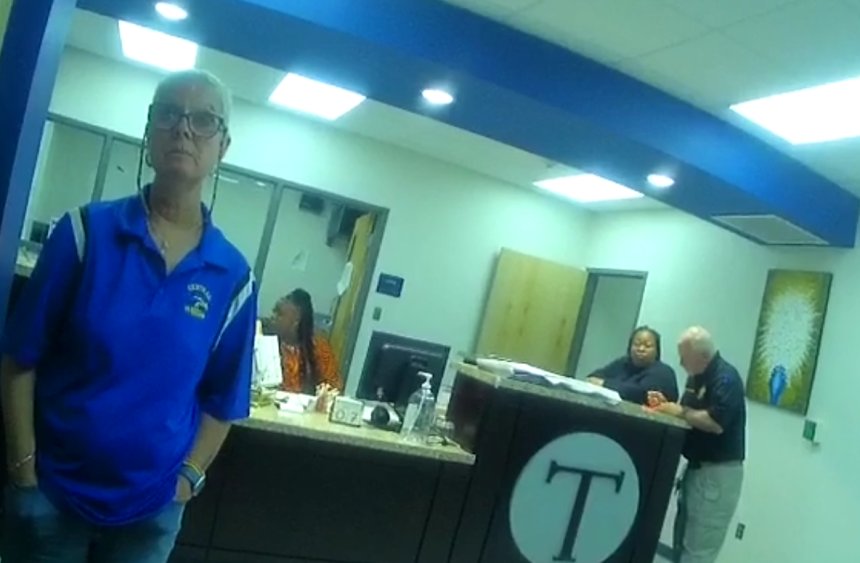Beverly Miller Falls Into Yet Another Default: New Court Filings Expose Deepening Legal Trouble for Talbot County’s Records Custodian
Talbot County’s mounting Open Records Act crisis just escalated again—this time with Beverly Miller officially in default in yet another lawsuit, according to newly-filed court documents. The filings, submitted in case 2025-CV-081, lay out a detailed and troubling pattern: repeated noncompliance with the Georgia Open Records Act (GORA), missed legal deadlines, and now back-to-back defaults in separate cases involving her conduct as the records custodian for the Talbot County Sheriff’s Office.

A Clear Default—With No Answer Filed and No Fee Paid
The Plaintiff’s Motion for Default Judgment, filed November 21, 2025, confirms that Beverly Miller failed to file any legal answer or responsive pleading within the required timeframe. She was served on October 2, 2025, making her answer due 30 days later under O.C.G.A. § 9-11-12(a), plus a final 15-day grace period that expired on November 19, 2025. No answer was filed, and—critically—the mandatory fee required to open default was not paid.
With all statutory deadlines blown and no corrective action taken, Miller is now in default as a matter of law, meaning all well-pleaded allegations against her are deemed admitted under O.C.G.A. § 9-11-55(a).
Serious Violations of the Open Records Act Established by Default
Because liability is automatically established, the factual allegations in the Amended Complaint now stand as legally admitted. These allegations include claims that:
-
Miller failed to respond within three business days, as required by O.C.G.A. § 50-18-71(b)(1)(A);
-
She failed to provide any lawful timetable for production;
-
She falsely claimed key public records were “non-existent” despite later admissions and confirmations proving otherwise;
-
She knowingly and willfully obstructed access to payroll logs, job applications, and employee work records that must be retained for four years under Georgia’s record retention schedule.
The Amended Complaint also specifies that the duty to respond to Open Records Act requests is a ministerial act—not discretionary. Failure to perform a ministerial act strips a public employee of any immunity defense.
Because of the default, these violations are no longer allegations. They are now judicial admissions.
The Sheriff’s Office Implicated Through Its Final Decision Maker
The Amended Complaint further asserts that Sheriff Bobby Gates Jr. is the “final decision maker” for all Open Records Act compliance at the Talbot County Sheriff’s Office—a fact supported by audio recordings referenced in the filing. Miller herself stated she must “consult with the Sheriff” before providing even the first fifteen free minutes of records search time required by law.
The Complaint alleges that the Sheriff’s Office both allowed and participated in delays, willful refusals, and unlawful denials of access to public records. Those claims now proceed on the merits in Count II.
Requested Remedies: Civil Penalties, Injunctions, and Court-Ordered Compliance
Because Miller is in default, the Court is now asked to enter judgment and schedule a hearing to determine:
-
Civil penalties of up to $1,000 for the first violation and up to $2,500 for each additional violation under O.C.G.A. § 50-18-74;
-
Litigation costs and attorney’s fees under § 50-18-73(b);
-
Declaratory relief formally recognizing that Miller violated the Open Records Act;
-
Injunctive relief requiring immediate production of the records and forcing the Sheriff’s Office to adopt lawful procedures for ORA compliance.
In addition, the Amended Complaint requests that the Court order the Sheriff’s Office to properly train and designate a lawful Open Records Officer, highlighting ongoing systemic failure.
A Pattern of Default: This Is Not Miller’s First Time
This is not an isolated lapse. Beverly Miller is now in default in another separate case as well, reinforcing what appears to be a disturbing pattern of ignoring court deadlines, disregarding statutory duties, and failing to participate in judicial proceedings.
Two defaults in two separate cases—both involving Open Records Act violations—underscore what could be a systemic breakdown in transparency obligations inside the Talbot County Sheriff’s Office.
A Turning Point for Transparency in Talbot County
These filings paint a stark picture:
The Talbot County Sheriff’s Office, through its designated records custodian, has repeatedly failed to comply with the Georgia Open Records Act, denied lawful access to basic public documentation, and now stands on the brink of judicial intervention through default judgment, civil penalties, and court-mandated reforms.
With the Court poised to rule on default judgment, Talbot County may soon face a legally enforceable reckoning—and potentially thousands of dollars in statutory penalties.
Transparency laws exist for one reason: to ensure government accountability. When a public agency repeatedly fails to comply—and when its records custodian falls into default not once, but twice—the judicial system has no choice but to step in.
As the legal process continues, one thing is clear:
The era of ignoring Open Records Act obligations in Talbot County may finally be coming to an end.
Share
What's Your Reaction?
 Like
4
Like
4
 Dislike
0
Dislike
0
 Love
0
Love
0
 Funny
0
Funny
0
 Angry
0
Angry
0
 Sad
0
Sad
0
 Wow
1
Wow
1











